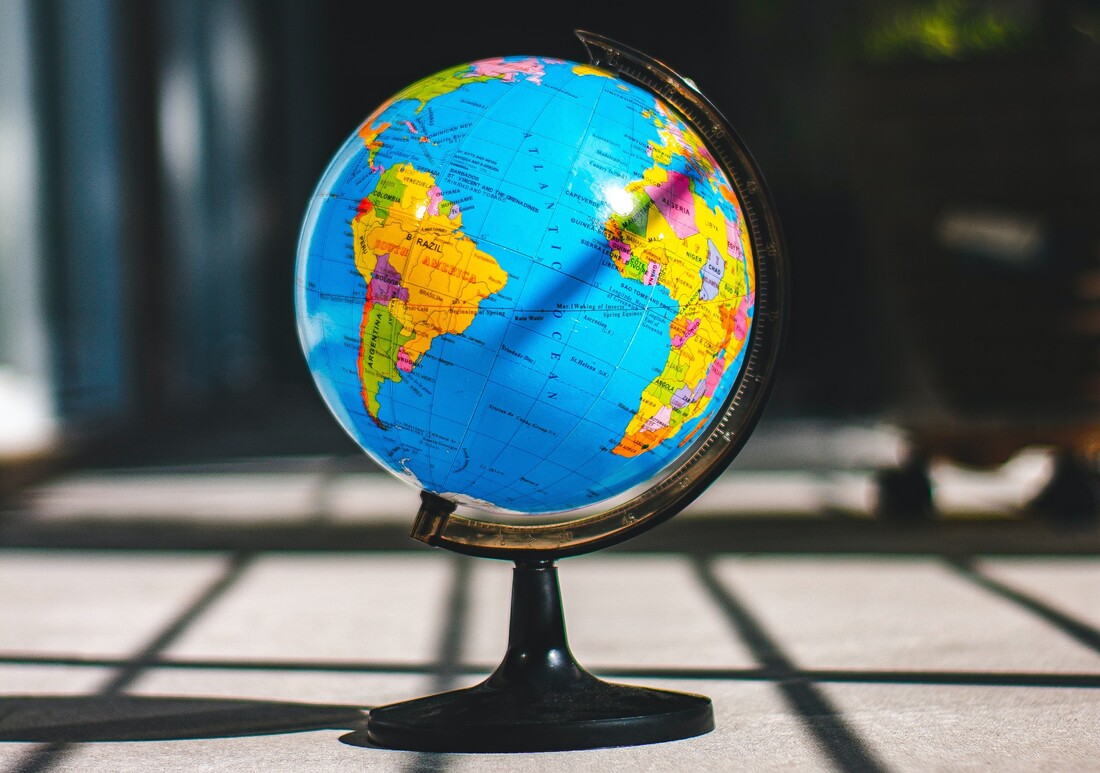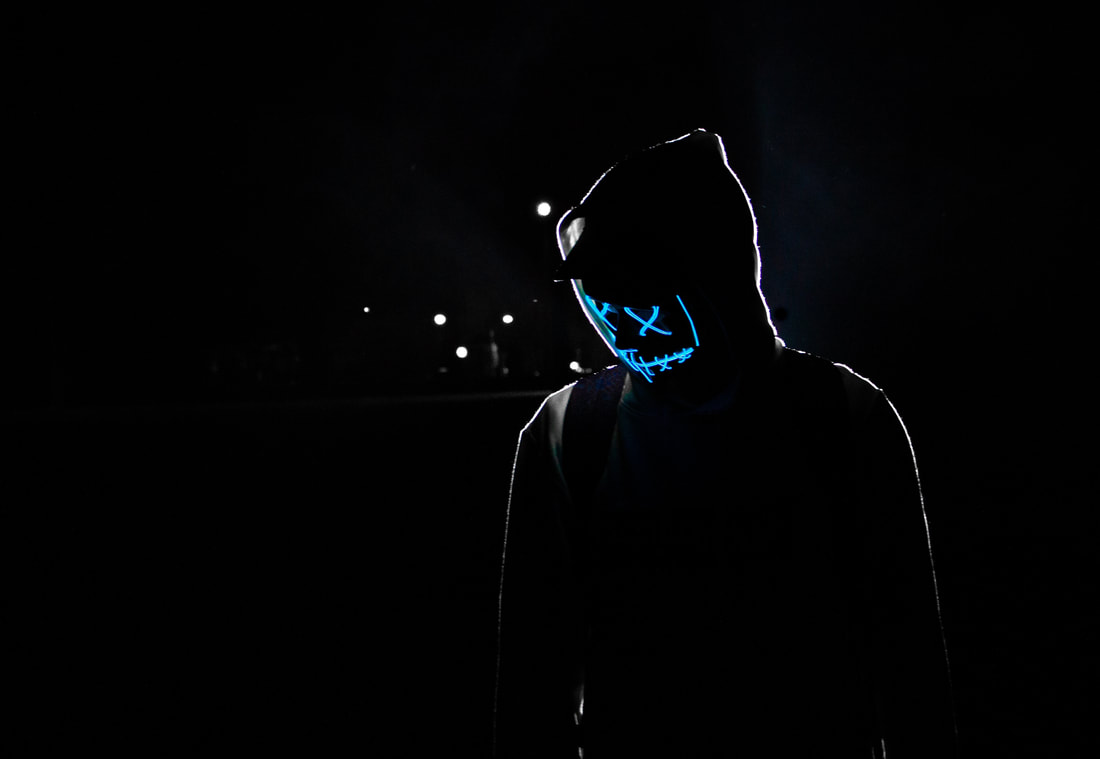|
‘Grief is not a disorder, a disease or a sign of weakness. It is an emotional, physical and spiritual necessity, the price you pay for love. The only cure for grief is to grieve.’ (Earl Grollman) Ambushed by grief. A graphic book title and a profound way to convey the experience of the experience. Grief can, at times, take us completely by surprise, impacting us suddenly and as if out of nowhere; leaving us breathless, broken and bleeding. My most traumatic grief experience was at age 18. I still re-experience it, like living in the vice-like grip of a terrible nightmare that stubbornly, agonisingly and tormentingly won’t let go. One of the best descriptions of grief I’ve ever read is a beautiful and painful personal expression of this phenomenon that, in the midst of such agonies, offers a picture of hope. It resonates with much of my own personal experience too. Only in more recent years have we begun to discover, perhaps to rediscover and to understand, the somatic dimensions and consequences of traumatic grief. The body certainly does keep the score. On Easter Saturday (a day that marks the existential time gap between Jesus’ death and his resurrection) this year, I visited a Christian community where one of its leaders shared a deeply evocative short video clip by Massive Attack. It captured and expressed feelings of denial, betrayal, pain, abandonment and death in such a way that left me stunned and speechless. We prayed for all who feel trapped in a perpetual state of dysthymia.
12 Comments
‘We don’t have a plane crash scheduled for today, but I thought I’d take you through the emergency procedures just in case.’ (KLM Air Hostess) I love the difference that a sense of humour can make. The air hostess (above) made everyone laugh during the passenger safety briefing on a return flight from the Netherlands today. The airline’s own plane had experienced maintenance problems so it had had to borrow one from another airline. One hostess complained, with a glint in her eye, that the green décor didn't match the blue colour of her uniform. The passengers all laughed when another hostess made an announcement too, aiming to draw our attention to an apparent information light on the plane…only to correct herself moments later with, ‘Oh – this plane doesn’t have one!’ Brilliant. It took the terror out of the turbulence. On a more serious note, I had been in the Netherlands to work with a diverse NGO leadership team, to support its desire to enhance its international teamwork. I referenced briefly a couple of places in the Bible where the writer comments on the amazing potential of human diversity – where the Divine whole is seen, known and experienced to be more than the sum of its parts – yet also hints at the corresponding dark risks of undervaluing, fragmentation and conflict if not. Strikingly, the writer moves on in both places to emphasise a deep need for authentic love as the critical success factor. This insight set a spiritual-existential tone for the day, as we reflected on team-as-relationships. Returning to the plane – but this time as a metaphor, a participant from South Africa asked, ‘How many separate parts is a Boeing 747 aircraft made up of?’ Apparently, the answer is about 6,000,000. ‘And what do these diverse components all have in common?’ Puzzled faces all round now. ‘None of them can fly.’ I thought this was genius. What a great way to dispel the myth of the all-sufficient self in the face of the dynamic complexities of teams, organisations and wider world. We worked through an Appreciative Inquiry next, drawing on positives of the past and aspirations of the present to co-create shared trust and vision for the future. Set the trajectory. Fasten seatbelts. Enjoy the flight. ‘Our reality is narrow, confined, and fleeting. Whatever we think is important right now, in our mundane lives, will no longer be important against a grander sense of time and place.’ (Liu Cixin) I think you could say we’re a family with an international outlook. My parents travelled extensively around the world and have touched most continents. My older brother lived in Brunei, married a Malaysian woman and has visited almost every country in Asia. My sister lived in Germany, mixes with friends from different countries and travels frequently to Spain to do salsa dancing. My younger brother ran a charity for and in Romania, did a medical mission in remote areas of the Amazon jungle and works in Dubai. I’ve been interested in different languages and cultures from childhood, have worked in 15 countries and have visited, have friends in and have worked with people from a lot more. I watch almost exclusively international news, pay special attention to South-East Asia and my home is adorned with globes and colourful maps. Much of my life has been preoccupied with the Nazis and how to use my own life to help avoid anything like such horrific atrocities ever happening again. Against this backdrop, my own coach, Sue, posed two interesting challenges recently: ‘What’s it like to spend so much of your life – mentally, emotionally and spiritually – overseas with the poor and vulnerable in far-flung places yet to be, physically, here in the UK?’ and, ‘What’s it like to spend so much of your life – mentally, emotionally and spiritually – in World War 2 yet to be, physically, here and now?’ What great questions. They resonate profoundly, for me, with what it is to be a follower of Jesus – a deep dissonance that arises from being in this world, yet in some mysterious way being not of this world. Existentially, it’s a kind of dislocation that, a bit like for Third Culture Kids (TCK), creates a sense of being a child of everywhere yet, somehow, not a child of anywhere – at least in this lifetime. I often feel more at home when I’m away from home, a paradoxical dynamic that both draws and propels me into different times and places and to seek out God, diversity and change. It means being a traveller, not a settler, and has influenced every facet of my entire life, work and relationships. ‘Human existence is always directed to something, or someone, other than itself – be it a meaning to fulfil, or another human being to encounter lovingly.’ (Viktor Frankl) Existential coaching is a powerful and introspective approach that can empower individuals and groups to confront life's fundamental questions, find meaning and embrace personal and social responsibility. Rooted in existential philosophy, this coaching method guides clients through self-exploration, enabling them to confront their fears and uncertainties and make authentic choices aligned with their values. Here are some examples of existential coaching questions:
Existential coaching recognizes that we all face inherent dilemmas, and embracing these challenges can lead to personal and social growth. Using this approach, the coach serves as a supportive ally, helping clients to confront their concerns, explore their inner personal-cultural truths and develop a deeper understanding of themselves. The client can learn to navigate life's complexities with greater clarity and intention, leading to a more meaningful and purposeful life. [Further reading: Monica Hanaway, The Handbook of Existential Coaching Practice (2020); Yannick Jacob, An Introduction to Existential Coaching (2019); Emmy van Deurzen & Monica Hanaway, Existential Perspectives on Coaching (2012)] ‘Carpe diem: seize the day. Make your life extraordinary.’ (Dead Poets Society) I was once invited by Lilin, my inspiring Malaysian sister-in-law, to speak at a University of the 3rd Age (U3A) event, for people who are retired from formal employment and interested to explore new ideas, experiences and themes. She invited me, simply, to share something of my own life story. I wasn’t sure where to start or to end or what to include in-between. How to distil a lifetime of experiences into a 45-minutes window? And, more importantly, what would people in this particular group find interesting, stimulating or worthwhile? So I prayed, jotted down notes of what came to mind, and then shared what I found most meaningful. I hoped it wouldn’t sound too alien and that they would feel at least some sense of connection. At the end, I was astonished to see a queue of people forming to speak with me. Apart from polite thank-yous, person after person looked at me, some with tears in their eyes, and said something along the lines of, ‘I too felt that prompt, that calling, that you described here today. But I was too scared to follow it so I didn’t. And now I so wish I had.’ Some expanded their accounts of how they had chosen to live too safely, too comfortably, and how this had, over time, stifled their sense of curiosity, courage and faith. I tried to reassure them with Richard Bach's words: ‘A test to find whether your mission on earth is finished: if you’re alive, it isn’t.’ For many, however, I could still see that haunting look of spiritual and existential angst on their faces: ‘I was too scared then, and I’m still too scared. And now it’s all too late.’ The greatest risk is never to take a risk. The time to act is now. ‘The international arms trade is in direct opposition to efforts to protect and pursue the health of our world and its inhabitants.’ (MedAct) When Jesus Christ was born, if he had been given the projected world armaments spend for this year alone – I have to sit down as I write this: he could have spent US$ 2,708,578 every… single… day... from then until now. And, whilst on the topic of Jesus, a good friend has a satirical sticker across the rear windscreen of her campervan that reads, ‘Who would Jesus bomb?’ The simple answer is, ‘Nobody’. He was far too concerned with bringing good news to the poor, vulnerable and oppressed. Bottom line: weapons didn’t feature on his bottom line. Yet here today we see world leaders striding confidently onto stages, adorned with flags and symbols, making elegant speeches and pointing accusing fingers at one another across starkly-divided world maps. Everyone is firmly committed to the, ‘I’m OK, You’re Not OK’ creed and absolutely convinced by the rightness of their own cause. The platform rhetoric is powerful, existential, and ramps up the ante. It’s a dangerous zero-sum, do-or-die game in which we could all – quite literally – obliterate the world in a quest to, allegedly, save the world. Meanwhile, I see children in the Philippines this week who live in dire poverty, sleeping in rags on hard ground. There are countless millions across the world living like this, with barely enough to survive let alone thrive. Scraps of food and no access to safe water, sanitation, healthcare or education. US$ 2,708,578. So, Jesus again – ‘Reach out to your enemies.’ We could try this: ‘We’ve all made a real mess of this. We’re partly to blame and we’re sorry for the part we played in how we got here. We want to work with you to co-create a very different future.' Everything is at stake. ‘Where words fail, music speaks.’ (Hans Christian Andersen) Music, like all forms of art, can bypass the rational filters of our minds and express or transport a message, a mood, deep into our bodies and souls. Many of the earliest musical influences on my own life had a profoundly existential feel, including Pink Floyd’s Time and Supertramp’s Logical Song. These songs have continued to carry that same resonance throughout my life, reflecting and reinforcing a deep sense of restlessness, resistance and reaching. Others have had a more overtly spiritual influence, including Tim Rice’s and Andrew Lloyd Webber’s Jesus Christ Superstar and U2’s Under a Blood Red Sky. They lifted me out of myself, helped make sense of what I knew and felt intuitively and galvanised my stance of faith. Some gave voice to the deep angst and discordant dissonance I felt in my life and in the world, including David Bowie’s Scream Like a Baby and The Saints’ This Perfect Day. What music or songs have had the deepest resonance or impact in your life? ‘How is that human systems seem so naturally to gravitate away from their humanness, so that we find ourselves constantly needing to pull them back again?’ (Jenny Cave-Jones) What a profound insight and question. How is that, in organisations, the human so often becomes alien? Images from the Terminator come to mind – an apocalyptic vision of machines that turn violently against the humans that created them. I was invited to meet with the leadership team of a non-governmental organisation (NGO) in East Africa that, in its earnest desire to ensure a positive impact in the lives of the poor, had built a bureaucratic infrastructure that, paradoxically, drained its life and resources away from the poor. The challenge and solution were to rediscover the human. I worked with a global NGO that determined to strengthen its accountability to its funders. It introduced sophisticated log frames and complex reporting mechanisms for its partners in the field, intended to ensure value for its supporters and tangible, measurable evidence of positive impact for people and communities. As an unintended consequence, field staff spent inordinate amounts of time away from their intended beneficiaries, completing forms to satisfy what felt, for them, like the insatiable demands of a machine. The challenge and solution were to rediscover the human. A high school in the UK invited me to help its leaders manage its new performance process which had run into difficulties. Its primary focus had been on policies, systems and forms – intended positively to ensure fairness and consistency – yet had left staff feeling alienated, frustrated and demoralised. We shifted the focus towards deeper spiritual-existential questions of hopes, values and agency then worked with groups to prioritise high quality and meaningful relationships and conversations over forms, meetings and procedures. The challenge and solution were to rediscover the human. Academics and managers at a university for the poor in South-East Asia had competing roles and priorities, and this had created significant tensions as well as affected adversely the learning experience of its students. The parties had attempted unsuccessfully to resolve these issues by political-structural means; jostling behind the scenes for positions of hierarchical influence and power. They invited me in and we conducted an appreciative inquiry together, focusing on shared hopes, deep values, fresh vision and a co-created future. The challenge and solution were to rediscover the human. Where have you seen or experienced a drift away from the human? Curious to discover how I can help? Get in touch! ‘The people living in darkness have seen a great Light; on those living in the land of the shadow of death, a Light has dawned.’ (Matthew 4:16, the Bible) ‘Death is a thick black wall, against which every soul is hurled and shattered.’ I don’t now remember who said that, but I do remember my philosophy lecturer quoting it when we studied existentialism. These are very dark words indeed and have, for me, a deeply foreboding and chilling feel to them. I sat down and avidly wrote an essay in response, doing my best to present what, I believed, were convincing rational arguments to counter such a nihilistic and hope-less outlook. When I got my paper back, the mark was nowhere near as high as I had hoped for or expected. The lecturer had commented simply yet profoundly that an existentialist writer would have absolutely no interest in my reasoning. It’s not about objectivity or logic. It’s about how it is and feels to be in the world; a phenomenological cry of angst in the face of fragile, fathomless, futility. It was as if, in my attempt to offer ‘correct’ thinking, I had totally missed the point. It never was about thinking. As the years have passed by, I too have known that angst, at a times an almost irresistible magnetic-like pull towards my own death. Sometimes, it has felt like half-clinging on weakly to avoid being pulled over the edge. In the face of unbearable and irreparable heartbreak, suicide can feel like a least-painful solution. Tom Walker’s moving song, Leave a Light On has deep emotional resonance here. Jesus is my life-saving Light. ‘At the end of the day, it’s either God or death.’ (James Wallace). Whatever Advent means to you, Light shines in darkness. Hold onto hope. 'The optimism of the action is better than the pessimism of the thought.' (Greenpeace) Resilience is a common buzz word today, partly in response to the complex mental health challenges that individuals and communities face in a brittle, anxious, non-linear and incomprehensible (BANI) world. Who would have imagined 3 years ago, for instance, that Covid19 would strike or that Russia would invade Ukraine, with all the ramifications this has precipitated in our personal and collective lives? It can feel like too much time spent on the back foot, reacting to pressures that may appear from anywhere, without warning, from left field – rather than creating the positive future we hope for. A psychological, social and political risk is that people and societies develop a ‘Whatever’ attitude, an apathetic ‘What’s the point?’ mentality. After all, what is the point of investing our time, effort and other resources into something that could all get blown away again in a brief moment? A good friend worked in Liberia with a community that was trying to recover from the effects of a bloody civil war. They started to build schools, hospitals and other infrastructure and, just as things were beginning to look hopeful, a violent, armed militia swept through the area and burned everything to the ground. This can feel like an apocalyptic game of snakes and ladders. Take one step forward and, all of a sudden, back to square one again. A close friend in the Philippines befriended people in a very poor makeshift community, surviving at the side of a busy road in boxes and under tarpaulins. She worked hard to improve the quality of their lives, to ensure that they felt and experienced authentic love, care and support, and it started to have a dramatic human impact. Faces brightened and hopes were lifted. Then, out of nowhere, government trucks appeared and bulldozed that whole place to the ground. It could be tempting to give up. One coping mechanism is to focus on living just one moment, one day, at a time because, after all, 'Who can know what tomorrow will bring?' This may engender an element of peaceful acceptance, akin to that through mindfulness. It can also morph into a form of passive, deterministic fatalism: ‘We can’t change anything, so why try?’ Martin Luther King's response stands in stark contrast who, in the face of setbacks, advocated, ‘We’ve got to give ourselves to this struggle until the end. Nothing would more tragic than to stop at this point. We’ve got to see it through.’ Psychologically, both approaches could be regarded as survival strategies, as personal and social defences against anxiety. In a way, they are adaptive responses: ways of thinking, being and behaving that seek to create a greater sense of agency and control in the face of painful powerlessness. In the former case, a level of control is gained, paradoxically, through choosing to relinquish control. It's a letting-go rather than a clinging-on. In the latter, a fight-response (albeit a faith-fuelled, non-violent fight in the case of MLK), control is sought by changing the conditions that deprive of control. Each constitutes it's own way of responding to an external reality – and it’s out there as well as in here that the real and tangible challenges of resilience and transformation persist. The social, political and economic needs of the poorest, most vulnerable and oppressed people in the world don’t exist or disappear, depending simply on how we or they may perceive or feel about them. MLK’s call to action was radical: ‘We need to develop a kind of dangerous unselfishness. It’s no longer a question of what will happen to us if we get involved. It’s what will happen to them (and us) if we don’t?’ [See also: Resilient; When disaster strikes; Clash of realities] |
Nick WrightI'm a psychological coach, trainer and OD consultant. Curious to discover how can I help you? Get in touch! Like what you read? Simply enter your email address below to receive regular blog updates!
|













 RSS Feed
RSS Feed